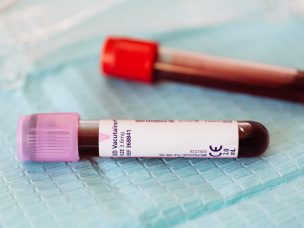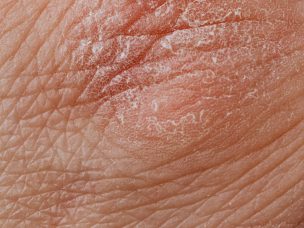December 6, 2023
Biliverdin Reductase B Plays Antioxidant Role in RBCs
BlvrB was determined to be an important antioxidant in mature red blood cells and was especially helpful in preventing hemolytic anemia in G6PD-deficient mice in a recent study. Biliverdin reductase B (BlvrB) is the fourth-most abundant enzyme in red blood cells (RBCs) and is also present in many other tissues. Existing literature on heme metabolism...
Mitapivat Treatment - Alleviating Anemia in KLF1 Mutation
This new study suggests that mitapivat may have a role in managing various hematological conditions like KLF1 mutation-related anemia, thalassemia, and other hemolytic conditions. Human erythroid Krüppel-like factor 1 (EKLF or KLF1) plays an important role in erythroid development. Most patients with KLF1 mutation suffer from severe hemolytic anemia and require regular blood transfusions. These...
Blood Rheology After Stem Cell Interventions in Sickle Cell Patients
A new study suggests the importance of functional blood tests in identifying the success of sickle cell anemia using stem cell transplantation or autologous gene therapy. For those diagnosed with sickle cell disease (SCD), allogeneic hematopoietic stem cell transplantation (HCT) and ex vivo autologous gene therapies (GT) are among the most promising treatment approaches. However,...
Unmasking the Adverse Effects of Diabetes on RBCs
A new study found that diabetes alters rheologic properties due to red blood cell deformity and increased adhesion, which increases cardiovascular risk in the condition. Diabetes is one of the most significant health disorders globally, and there has been a fourfold increase in the number of individuals affected by the condition since 1980. Among the...
Study Suggests New Primaquine Regime in G6PD Deficient Patients with P. Vivax
Primaquine is contraindicated in patients with P. vivax infections due to a risk of hemolysis. However, a novel humanized murine study identified specific conformational changes in glucose 6-phosphate dehydrogenase deficiency that confirm that activity of the enzyme decreases with RBC age and support dose escalation regimens, as currently suggested by clinical studies. Approximately 500 million...
Biliverdin Reductase B Plays Antioxidant Role in RBCs
BlvrB is an important antioxidant in mature red blood cells. It is especially helpful in preventing hemolytic anemia in G6PD-deficient individuals. Biliverdin reductase B (BlvrB) is the fourth-most abundant enzyme in red blood cells (RBCs) and is also present in many other tissues. Existing literature on heme metabolism and bilirubin-related pathologies has predominantly focused on...
What Are the Most Common Skin Conditions Affecting African Americans?
Medical conditions impact everyone differently. Genetics, biology, and many other factors all come together to determine how a body will deal with a condition and, as a result, how serious the condition will be. Because of this, skin conditions are found at different incidence rates in different groups of people. This means the skin conditions...
Diet-Induced Inflammation Not Linked to Psoriasis
Dietary inflammatory index not linked to psoriasis in participants with different population settings Diet-induced inflammation seems not to be associated with psoriasis, according to a study published online Jan. 26 in the Journal of Dermatology. Nouzhou Liu, from Sichuan University in Chengdu, China, and colleagues examined the association between the dietary inflammatory index (DII) and incident...
AI Model Differentiates Scalp Psoriasis From Seborrheic Dermatitis
A deep learning (DL) model based on dermatoscopic images can differentiate scalp psoriasis from seborrheic dermatitis, according to a study recently published in Frontiers in Medicine. Zhang Yu, from Inner Mongolia Medical University in Hohhot, China, and colleagues developed a new diagnostic method for discriminating scalp psoriasis and seborrheic dermatitis based on a DL model. A...







